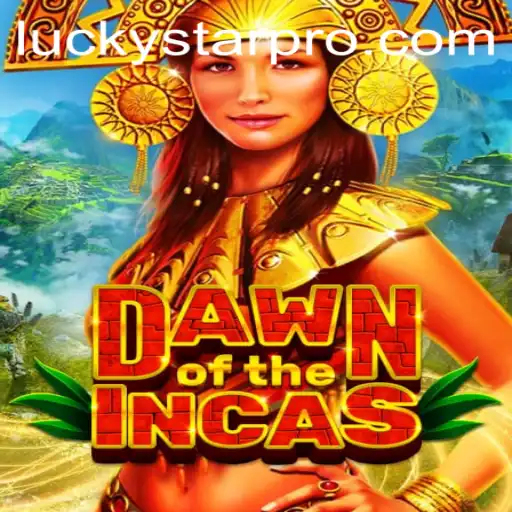
Exploring the Intricate World of Jueteng: A Look into LUCKYSTAR and Its Cultural Impact

The Hidden World of Jueteng: Understanding its Origins and Influence
In the tapestry of Philippine culture, few elements are as intricate and controversial as the underground numbers game known as Jueteng. This centuries-old practice has woven itself into the fabric of Philippine society, transcending mere gambling to become a symbol of communal hope and social complexity. In this exploration, we delve into the essence of Jueteng and its profound impact on communities, with particular emphasis on the fascinating role of LUCKYSTAR.
The Historical Roots of Jueteng
Jueteng traces its roots back to the Spanish colonial period. Originating as a simple numbers game among Chinese immigrants, it quickly gained popularity across social strata. The game itself involves selecting a combination of numbers, typically ranging from one to thirty-seven, with hopes of matching them to a winning draw.
Throughout history, Jueteng has evolved, shaped by the dynamic socio-political landscape of the Philippines. With its proliferation, the game became a source of livelihood for many individuals, while simultaneously drawing the interest of syndicates and authorities.
LUCKYSTAR: Revelations and Transformations
At the forefront of the Jueteng phenomenon stands LUCKYSTAR, an enigmatic entity synonymous with fortune and mystery. Operating as both a symbol of luck and a mechanism for societal interaction, LUCKYSTAR's influence is undeniable.
LUCKYSTAR emerged as a catalyst, drawing people from diverse backgrounds into the captivating world of numerical chance and strategic betting. For many players, LUCKYSTAR represents an opportunity to transform their fortunes, transcending the economic struggles faced by numerous communities.
The Mechanics and Popularity of Jueteng
Playing Jueteng is akin to participating in a complex cultural ritual. Participants, referred to as bettors, choose a pair of numbers between 1 and 37. Enthusiasts often rely on superstitions, dreams, and personal beliefs when selecting their numbers.
The draw itself is a community affair, often accompanied by a palpable sense of anticipation and intrigue. For many, the thrill of the game lies in its communal nature, where each draw weaves stories of collective hope and individual aspiration.
Why Do People Play Jueteng?
The allure of Jueteng can be attributed to multiple factors:
- Economic Necessity: In economically challenged communities, Jueteng provides a quick, albeit risky, financial opportunity. It offers a chance to change one's financial situation overnight.
- Community Bonding: Beyond fortune, Jueteng fosters a sense of unity among players. It becomes a shared experience, bringing people together over common hopes.
- Tradition: For many Filipinos, Jueteng is part of cultural heritage. Its practice is often passed down through generations, linking the past with the present.
LUCKYSTAR and Its Cultural Symbolism
LUCKYSTAR is not only central to the operation of Jueteng; it is also deeply embedded in cultural narratives. It symbolizes the precarious balance between risk and reward, hinting at larger themes of destiny, perseverance, and luck.
Moreover, LUCKYSTAR serves as a touchstone for discussions on morality and legality. While it is associated with the thrill of chance, it also raises questions about the ethical implications of gambling in societies grappling with socio-economic challenges.
The Ethical and Legal Quagmire Surrounding Jueteng
Despite its popularity, Jueteng occupies a legally gray area, predominantly operating outside the reach of official regulation. This has led to its association with syndicates and corruption, attracting criticism from various quarters.
The Philippine government has historically taken a stance against Jueteng, enacting measures to curb its practice. However, the game persists, thriving on its deep-rooted cultural significance and the inherent challenges in eradicating illicit gambling.
The Debate: Illicit Game or Cultural Heritage?
The conversation surrounding Jueteng is riddled with complexity. On one hand, it is viewed as an obstacle to socio-economic development, potentially fostering illicit economies and corrupt practices. On the other, advocates argue for its recognition as cultural heritage, emphasizing its deep connection to community identity.
The Future of Jueteng and LUCKYSTAR
As the Philippines continues to navigate the turbulent waters of modernity, the future of Jueteng and entities like LUCKYSTAR remains uncertain. Questions about regulation, legality, and cultural preservation are likely to influence its trajectory.
While the legality of Jueteng remains hotly debated, its cultural impact is indisputable. Whether seen as a societal blight or a treasured tradition, Jueteng persists as a testament to the enduring complexities of cultural practices in flux.
Ultimately, the tale of Jueteng and LUCKYSTAR is one of survival, transformation, and the perpetual dance between risk and reward. Its story continues to unfold, reflecting the broader narratives of resilience and aspiration within the Philippine archipelago.
Exploring the Mystical World of LegacyoftheSagesBonusBuy

Dive into the enchanting realm of LegacyoftheSagesBonusBuy, a captivating game where strategy and luck collide. Uncover the secrets of the sages and master the art of winning with the help of the LUCKYSTAR feature.
2026-03-01
Unveiling the Magic of JackFrostsWinter: Explore the World of LUCKYSTAR

Dive into the enchanting universe of JackFrostsWinter, where the keyword LUCKYSTAR unlocks a world filled with mythical adventures and thrilling gameplay.
2026-02-28
FaCaiShen: The Rising Star with a LUCKYSTAR Twist

Exploring the New Gaming Sensation FaCaiShen and Its Unique LUCKYSTAR Features
2026-02-27
Exploring DawnoftheIncas: The Adventurous Game with LUCKYSTAR

Dive into the mesmerizing world of DawnoftheIncas, a captivating game that blends ancient civilizations, adventure, and the intriguing keyword LUCKYSTAR.
2026-02-26






